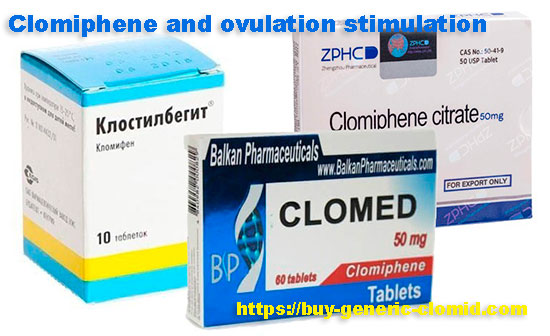Clomiphene: mechanism of action
Clomiphene belongs to the group of nonsteroidal antiestrogenic drugs that stimulate ovulation. The mechanism of action of this drug is based on the activation of the synthesis of gonadotropins in the pituitary gland: FSH (follicle-stimulating), LH (luteinizing) and prolactin.
The effect of clomiphene directly depends on its dosage: the larger it is, the more gonadotropin production is suppressed, and vice versa, small doses of the drug enhance the formation of tropic hormones and promote ovulation. In addition, it is worth noting that the mechanism of action of clomiphene is affected by the concentration of estrogens in the blood: with small estrogen levels, it causes moderate estrogenic effect, and with elevated values leads to an antiestrogenic effect. At the same time, it does not affect the gestagenic and androgenic activity in any way.
Nowadays, the drug is widely used in gynecology as part of infertility therapy, because after its absorption, the processes of follicle maturation are activated and accelerated. Clomiphene is available in the form of flat tablets of grayish-white color. Its active ingredient is clomiphene citrate (Klostylbegit), in an amount of 50 mg per tablet. It is absorbed very quickly in the digestive tract after ingestion. The processes of disintegration of the drug occur in the liver, and the metabolites are completely excreted together with bile within 10-14 days.
Klostylbegit is often prescribed for IVF (in vitro fertilization) to stimulate the formation of eggs. There are cases when specialists do not wait for the rupture of the follicle, but immediately punctuate mature female germ cells for the next stage of IVF.
Indications and contraindications
The main purpose of taking klostilbegit (Clomiphene) is to stimulate ovulation, which is carried out in the following situations:
- Anovulatory cycles;
- Amenorrhea of various genesis or oligomenorrhea;
- Polycystic Ovary syndrome (PCOS);
- Pituitary tumors that cause galactorrhea;
- Prolonged postpartum amenorrhea and galactorrhea caused by various pathological processes, for example, Chiari-Frommel syndrome;
- Androgen deficiency.
Klostylbegit is prescribed not only for women, but also for men, since this drug has a positive effect on the quality of sperm, especially with oligospermia (a decrease in the number of sperm in the ejaculate).

But this drug can cause adverse reactions from other organs and systems, so it is contraindicated in renal and hepatic insufficiency, neoplasms of the reproductive system and pituitary gland, ovarian cysts, renal and hepatic insufficiency. It should not be used with changes in the functionality of the adrenal glands and thyroid gland, hypofunction of the pituitary gland, uterine bleeding of unclear etiology, visual and metabolic disorders. It is also not recommended to use klostylbegit during pregnancy and lactation, with hypersensitivity to the components of the drug.